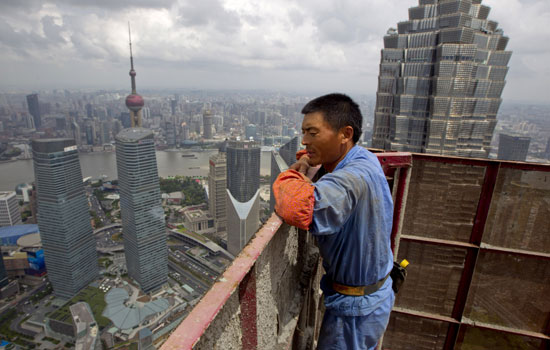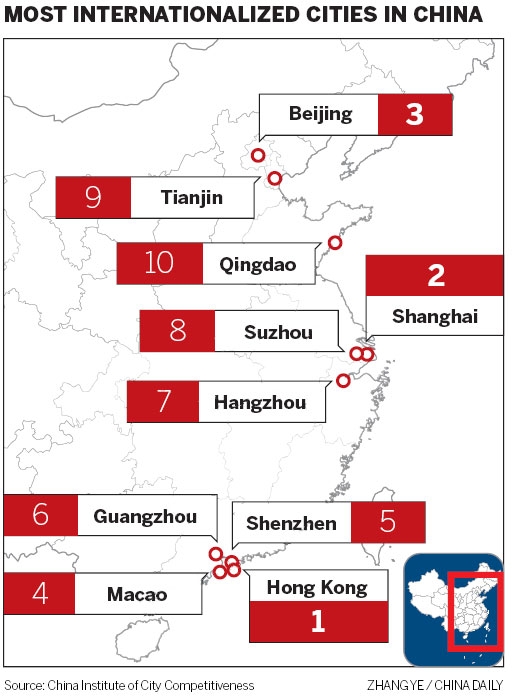Eastern city in position to pass HK in ranking in next few years
Shanghai is likely to overtake Hong Kong in just a few years to become China's most competitive city, according to a report published by the China Institute of City Competitiveness.
|
 |
|
The construction site of the Shanghai Tower, which will be the tallest building in the city when it is completed in 2015. Shanghai is expected to overtake Hong Kong to become the most competitive city in China in a few years, according to a recent study. [Photo/China Daily]? |
The institute, a non-government organization founded in 1998 in Hong Kong, released 21 rankings on Wednesday at a news conference in Hong Kong in its latest annual evaluation of Chinese cities.
The rankings were compiled by taking into consideration a wide range of attributes among various cities, including comprehensive competitiveness, internationalization, growth potential and safety. Shanghai took second place on five of the 21 lists, coming in behind Hong Kong in each case. Hong Kong has held the top spot in the ranking of comprehensive competitiveness in each of the past 11 years.
But Shanghai has been catching up recently. For 2012, Shanghai scored 14,607 points on the ranking of comprehensive competitiveness, only 253 points below Hong Kong. Beijing and Guangzhou took the third and fourth places on the list.
"Hong Kong is facing quite a challenge from Shanghai," said Gui Qiangfang, president of the institute.
Shanghai's economy is in fact already much larger than Hong Kong's. In the first half of the year, Shanghai's gross domestic product increased by 7.2 percent year-on-year to 955.2 billion yuan ($115 billion). That compares with Hong Kong's GDP of $96.68 billion, a year-on-year increase of just 0.9 percent.
Beijing's GDP is also larger than Hong Kong's. And Gui projected that the economies of many of China's second-tier cities, including Tianjin, Hangzhou and Suzhou, will also become larger than Hong Kong's in the next five to eight years.

For the time being, Hong Kong is still considered to have sounder legal and market systems than Shanghai, especially when they are gauged by their general openness.
But that lead has become increasingly fragile as the Hong Kong government has intervened more in the market in recent years, said Xie Xiancheng, vice-president of the institute and the chairman of Hong Kong Institute of Real Estate.
"Hong Kong's strengths lie in its openness," Xie said. "And government intervention will take that away from Hong Kong."
In a recent move, the Hong Kong government announced in October that it will begin charging a 15 percent stamp duty on homebuyers who are not permanent Hong Kong residents.
In contrast, Han Zheng, the new Party chief of Shanghai, said last month that the city must move faster to transform the functions of its government.
Many mainland cities, meanwhile, are not only improving their quality. They are also developing faster.
The institute forecast that China's urbanization rate will reach 65 percent by 2025, up from 51.27 percent in 2011. By then, China will be home to 900 million city dwellers, up from 690 million in 2011.
The process of rapid urbanization will help ensure that GDP and personal income in China continue to increase in the long term. By 2020, about 48 percent of China's population will belong to the middle class, the institute said.
